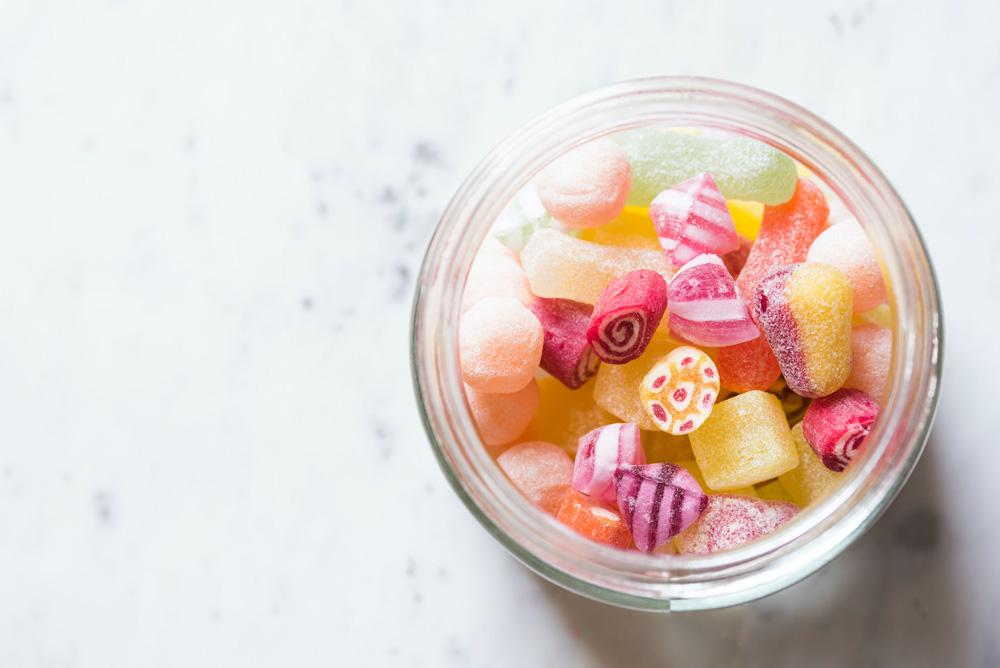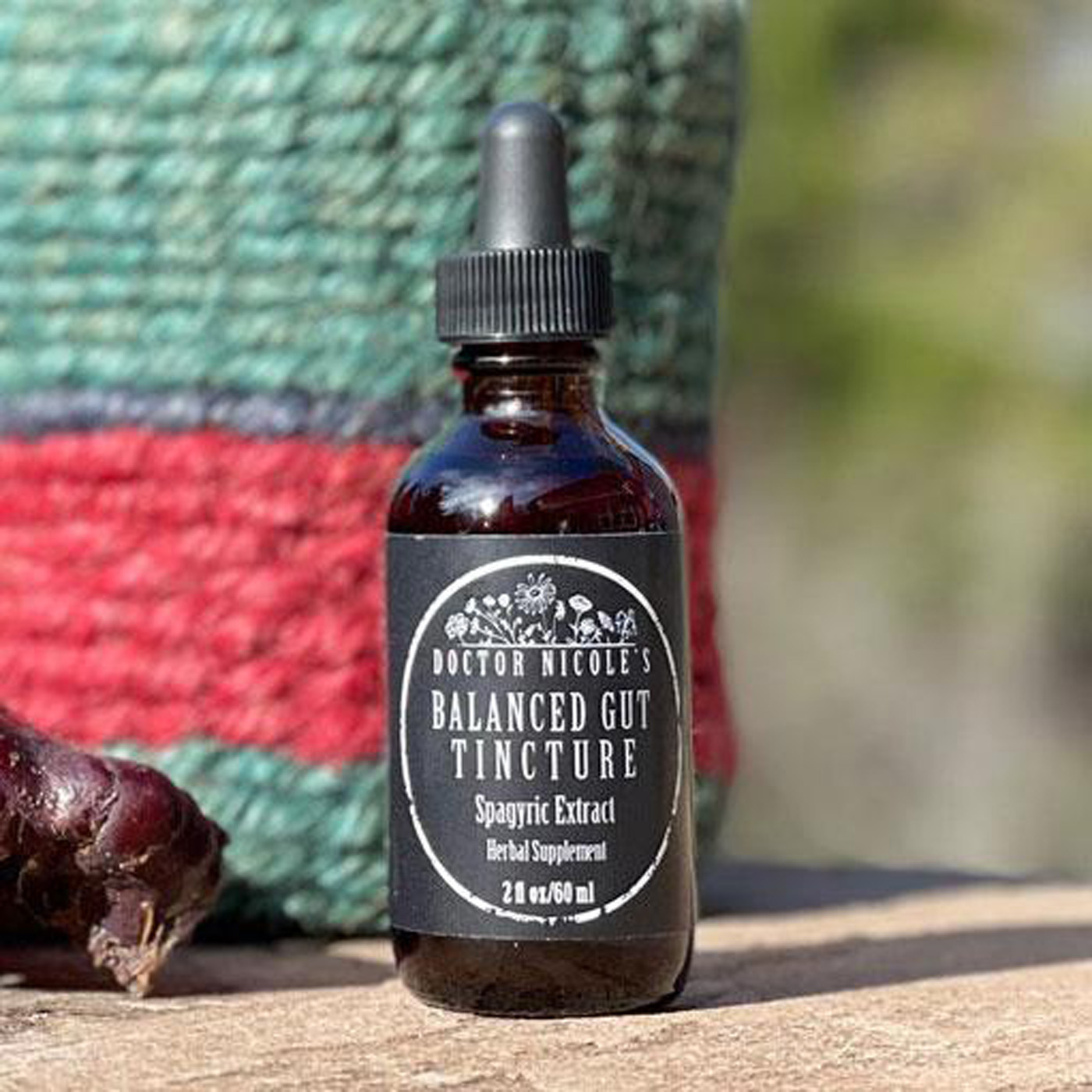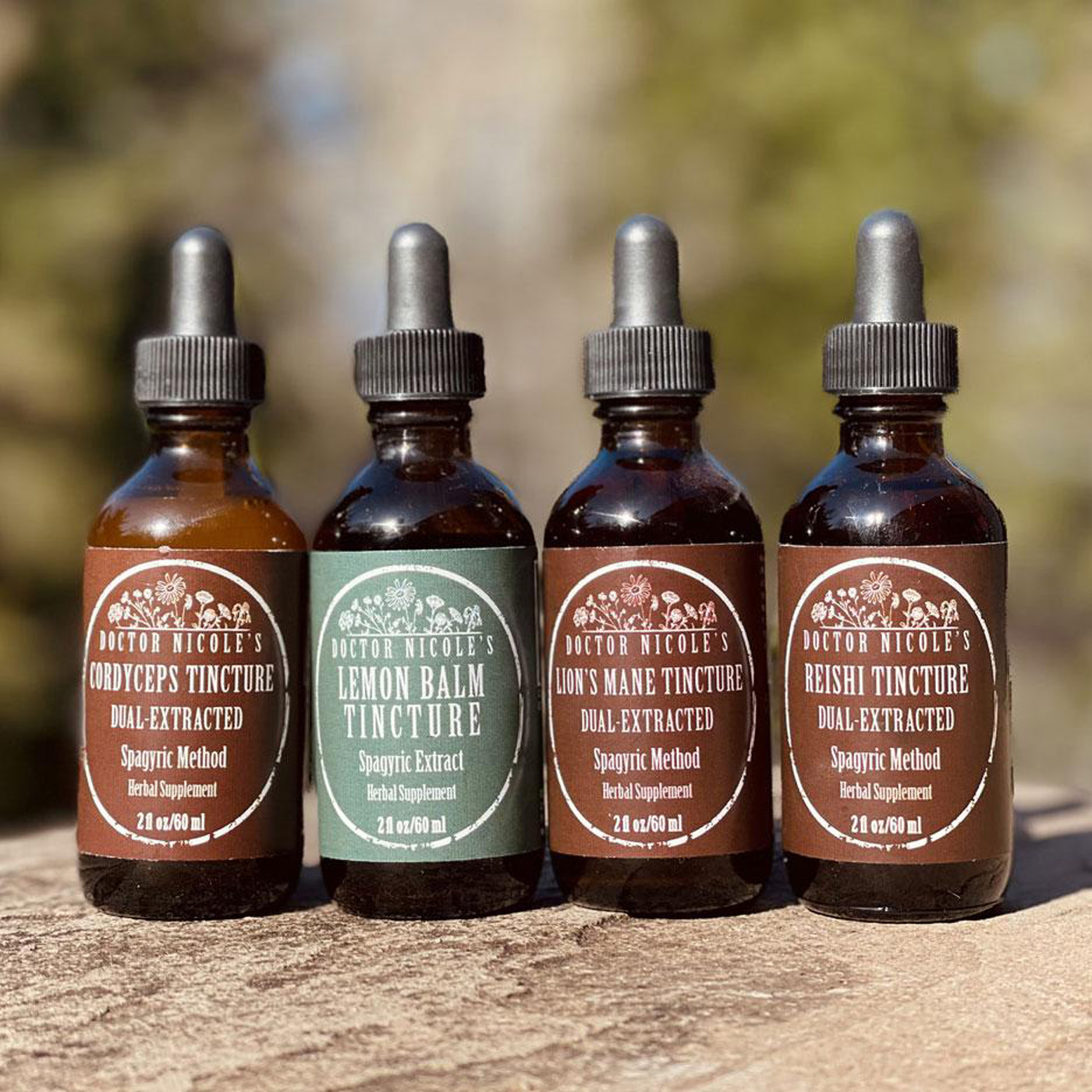The Significant Health Impacts of Refined Sugar
Found in almost every processed food available — from peanut butter to yogurt and tomato sauce — refined sugar is difficult to dodge. In the United States, a large percentage of our daily caloric intake is from added sugar — an astounding 17%. This averages between two to three pounds per week. Compare this with the sugar consumption of those living in the 1800s, where a person ate about five pounds per year. Clearly, Americans have a sugar problem.
Not only does refined sugar contribute to type 2 diabetes and obesity, it increases your risk of cardiovascular disease, cancer, and kidney disease. What’s more, eating refined sugar is linked with fatigue, depression, leaky gut, and fatty liver disease.
Need another reason to kick the sugar habit? Researchers have also found that it accelerates cognitive decline, including dementia, brain fog, and issues with memory and problem solving. For our purposes here, we will focus on the impact refined sugar has on brain function and how to remedy our addiction to this widespread additive.

High Glucose Levels and Cognitive Decline
A study published in the New England Journal of Medicine discovered there is a direct link between high blood glucose levels and cognitive impairment in the form of dementia.1 The researchers used 35,264 clinical measurements of glucose levels and 10,208 measurements of glaciated hemoglobin levels from 2067 participants without dementia.
The results were “stratified according to diabetes status and adjusted for age, sex, study cohort, educational level, level of exercise, blood pressure, and status with respect to coronary and cerebrovascular diseases, atrial fibrillation, smoking, and treatment for hypertension.”
The team found there was a strong correlation between high blood glucose and developing dementia, even among those who did not have diabetes.
Likewise, research published in Nutritional Neuroscience has shown that consumption of sugar-sweetened beverages is “significantly associated with a decline in cognitive function after 6 years” when compared to the those who consumed artificially-sweetened beverages.2
Diabetics are particularly prone to brain fog and cognitive dysfunction due to poor blood sugar regulation. Symptoms include:
- Dizziness
- Confusion
- Irritability
- Fatigue
- Memory loss
- Difficulty finding words
- Slow information processing
- Poor concentration
- Trouble with problem-solving
When blood sugar becomes too low, as in the case of hypoglycemia, you may experience fatigue, headaches, and brain fog. When your blood sugar is too high with hyperglycemia, it impacts your blood circulation, including that to the brain, which impacts your ability to think clearly. Additionally, it can increase the production of serotonin. Too much of this neurotransmitter “can lead to brain cell damage, nerve damage, and inflammation in the brain, which all contribute to cognitive problems like memory loss and brain fog.”3
Need blood sugar support or extra help in boosting cognitive function?
Try my Heart & Blood Sugar Support and Brain Bundle in the apothecary
and experience the power of herbal medicines for yourself!
Moreover, researchers at the University of Wisconsin discovered that the brain may react to excessive refined sugars in food the same as if it were a virus or bacteria. On top of that, high blood sugar paired with a mentally challenging task can elevate cortisol levels. This is the same stress hormone that negatively impacts memory (and your waistline). In short, refined sugar affects your focus, short-term memory, and mood. It also can slow neural communication, cause brain inflammation, increase brain waves that interfere with clear thinking, and ultimately damage brain neurons.4
While sugar has been classified as more addictive than cocaine11, it is possible to defeat this sweet temptation. Here’s how.

Know Your Brain Chemistry
Whenever we eat refined sugar, it causes a cascade of chemical reactions within the body and brain. One of these is the release of dopamine, a feel-good neurotransmitter associated with reward, motivation, memory, attention, and pleasure. This is why sugar is so addictive. The problem is, you need to consume increasing amounts of refined sugar in order to maintain this “dopamine high”.
It’s not enough to simply read labels and avoid added sugar and sweets, although this is an important first step. We also need to support healthy dopamine levels so we aren’t overly drawn to sugar in the first place. Here are several ways you can help to boost dopamine naturally:
Eat plenty of protein. Tyrosine is an amino acid present in protein that’s crucial for dopamine production.5 It can be found in turkey, beef, eggs, dairy, soy, and legumes.
Exercise regularly. Not only does exercise trigger the release of feel-good endorphins, it also boosts dopamine. When pain-relieving endorphins attach to opiate receptors in the brain, dopamine is released. An animal-model study demonstrated that running on a treadmill increased dopamine and the number of dopamine receptors in the reward region of the brain.6
Avoid saturated fat. Eating a diet high in saturated fat from butter, full-fat dairy, palm and coconut oil, and animal fat disrupts dopamine balance in the brain.7,8
Maintain gut health. Science now recognizes a strong link between the gut and brain. The gut is often referred to as the “second brain” because it produces a high number of neurotransmitters, such as dopamine. Specific gut bacteria play a vital role in producing these neurotransmitters, which is why you want to make sure your microbiome is robust. This can be achieved through a healthy diet rich in fiber, resistant starch, and fermented foods; limiting refined sugar; and using my Balanced Gut Blend for extra support.
Enjoy more fava and velvet beans. As one of the best sources of L-dopa, a precursor to dopamine, these beans naturally help boost this neurotransmitter. A study back in 1992 found that people with Parkinson’s (a condition associated with low dopamine levels) who ate 250 grams of cooked velvet beans experienced a reduction in their symptoms 1-2 hours after the meal. The team attributed these improvements to an increase of dopamine from the beans.9 Keep in mind that velvet beans can be toxic in high amounts. Another study found that fava beans helped to boost dopamine levels in Parkinson’s patients.10
Sugar Detox and the Brain
Once you have reduced your intake of added sugar in the form of processed foods, beverages, and sweets, you may struggle with cravings for a time. But stick with it. The benefits far outweigh the temporary discomfort. During this transition, if you need something sweet, focus on low-glycemic fruits such as berries, cherries, apples, pears, plums, and grapes; stevia or monk fruit sweetened teas and beverages; or even a handful of unsalted nuts to curb cravings. Boosting your protein intake helps as well. Keep in mind that salty and high-flavor foods can send sweet cravings into overdrive.
Initially, you may find your brain fog, cognitive function, and mood become worse as your brain chemistry adjusts. Headaches may also arise. You will typically begin to see the brain-boosting benefits within 6-10 days of giving up refined sugar.
I’ve experienced this firsthand — as have many others. You are more clear-headed and focused. Mental clarity is sharp, as is memory. Productivity improves. And problem solving is, well, not a problem. You also feel happier and sleep better.
Herbal Solutions
If you need extra support in balancing your blood sugar levels, boosting cognitive function, or improving gut health, these apothecary formulations have you covered!
To regulate blood sugar levels and improve brain function, try my Heart & Blood Sugar Support Bundle. It contains dual-extracted, spagyric tinctures of Cordyceps, Reishi, and Turkey Tail mushrooms for blood sugar regulation, improved circulation, decreased inflammation, and increased cognitive health. It also includes our potent Lemon Balm tincture for blood sugar control, anxiety relief, and lowering blood pressure.
For boosting cognitive function, our Brain Bundle contains a collection of powerful herbal remedies for enhancing brain health. It includes dual-extracted, fruiting body tinctures of Cordyceps, Lion’s Mane, and Reishi medicinal mushrooms, plus our Lemon Balm tincture.
These 3 mushrooms have unique, research-backed benefits that include: lowering neuroinflammation, stimulating Nerve Growth Factor (NGF), boosting cognitive function, limiting neuronal cell death, enhancing memory, calming stress, combating fatigue, and boosting energy. Lemon Balm is associated with improvements in memory, mood, and age-related cognitive performance, a reduction in stress and anxiety, and improved clarity and focus.
Need to improve gut health? My Balanced Gut Blend is for you! It contains anti-inflammatory and soothing herbs that help to encourage a healthy microbiome and “good” bacteria, repair the intestinal tract, restore healthy gut function, and control the overgrowth of candida.
Learn more about these and many other potent herbal formulations by visiting the apothecary today!
Nicole Apelian
Nicole’s Apothecary Products in this Post
References
-
Crane, P. K., Walker, R., Hubbard, R. A., Li, G., Nathan, D. M., Zheng, H., Haneuse, S., Craft, S., Montine, T. J., Kahn, S. E., McCormick, W., McCurry, S. M., Bowen, J. D., & Larson, E. B. (2013). Glucose levels and risk of dementia. The New England journal of medicine, 369(6), 540–548. https://doi.org/10.1056/NEJMoa1215740
-
Muñoz-García, M. I., Martínez-González, M. A., Martín-Moreno, J. M., Razquin, C., Cervantes, S., Guillén-Grima, F., & Toledo, E. (2020). Sugar-sweetened and artificially-sweetened beverages and changes in cognitive function in the SUN project. Nutritional neuroscience, 23(12), 946–954. https://doi.org/10.1080/1028415X.2019.1580919
-
Marina Basina, M.D., and Valencia Higuera, “Can Diabetes Cause Brain Fog?”. Healthline, February 21, 2020. https://www.healthline.com/health/diabetes/brain-fog-diabetes
-
Teresa Aubele Ph.D., “Why a Sugar High Leads to a Brain Low: Overindulgence in sweets can lead to five hours of hell.” Psychology Today, October 18, 2011. https://www.psychologytoday.com/us/blog/prime-your-gray-cells/201110/why-sugar-high-leads-brain-low
-
James Sonne; Amandeep Goyal; Wilfredo Lopez-Ojeda, “Dopamine”. National Library of Medicine. July 4, 2022. https://www.ncbi.nlm.nih.gov/books/NBK535451/
-
Meeusen, R., Piacentini, M. F., & De Meirleir, K. (2001). Brain microdialysis in exercise research. Sports medicine (Auckland, N.Z.), 31(14), 965–983. https://doi.org/10.2165/00007256-200131140-00002
-
Davis, J. F., Tracy, A. L., Schurdak, J. D., Tschöp, M. H., Lipton, J. W., Clegg, D. J., & Benoit, S. C. (2008). Exposure to elevated levels of dietary fat attenuates psychostimulant reward and mesolimbic dopamine turnover in the rat. Behavioral neuroscience, 122(6), 1257–1263. https://doi.org/10.1037/a0013111
-
Geiger, B. M., Haburcak, M., Avena, N. M., Moyer, M. C., Hoebel, B. G., & Pothos, E. N. (2009). Deficits of mesolimbic dopamine neurotransmission in rat dietary obesity. Neuroscience, 159(4), 1193–1199. https://doi.org/10.1016/j.neuroscience.2009.02.007
-
Rabey, J. M., Vered, Y., Shabtai, H., Graff, E., & Korczyn, A. D. (1992). Improvement of parkinsonian features correlate with high plasma levodopa values after broad bean (Vicia faba) consumption. Journal of neurology, neurosurgery, and psychiatry, 55(8), 725–727. https://doi.org/10.1136/jnnp.55.8.725
-
Mehran S M, M., & B, G. (2013). Simultaneous determination of levodopa and carbidopa from fava bean, green peas and green beans by high performance liquid gas chromatography. Journal of clinical and diagnostic research : JCDR, 7(6), 1004–1007. https://doi.org/10.7860/JCDR/2013/5415.3072
-
Ahmed, S. H., Guillem, K., & Vandaele, Y. (2013). Sugar addiction: pushing the drug-sugar analogy to the limit. Current opinion in clinical nutrition and metabolic care, 16(4), 434–439. https://doi.org/10.1097/MCO.0b013e328361c8b








